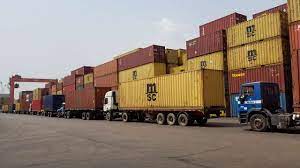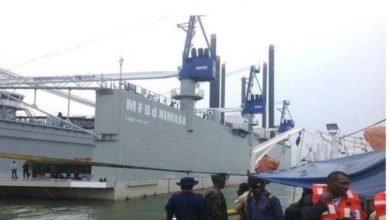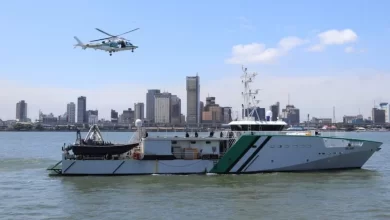TTP set to increase automation for enhanced electronic truck call-up system

By ADAKU WALTER
Truck Transit Park Limited (TTP), operators of the Nigerian Ports Authority (NPA) electronic truck call-up system has hinted of fresh moves to improve its operations and increase automation in the process of admitting trucks into the nation’s ports.
Speaking at a media briefing to mark the one-year anniversary of managing the electronic call-up system at the Lagos ports, Managing Director of TTP, Jama Onwubuariri, said the drive for full automation is aimed at reducing human interference and eliminating all forms of manual processes in the management and movement of trucks.
He said to achieve this, the company would engage more with the seaport terminal operators in order to ease cargo clearance and increase port operational efficiency.
Read Also: Fashola seeks enforcement of traffic law against indiscriminate trucks parking in Apapa
“We are hoping to move from a system where you need to show your ticket to someone at the port gate who will direct you to where you need to punch it or where you need to physically come off your truck and punch in your ticket code to be able to gain access to being able to use the equivalent of e- tags that are further tech enabled to get access into the port and into the truck parks without having to use any manual process. This is research we are currently working on.
“We recently implemented a terminal request procedure that ensures that the port terminals provide us electronically with the number of containers, both export and empties, that they are expecting at their terminals from the shipping lines.
“NPA traffic managers are expected to update the Eto app with that information and that will be the basis for releasing trucks from the various pre-gate to the ports.
“By following the process, we can match the port terminals expectations and what they can process with the number of trucks sent to the streets,” he said.
Speaking on the successes of the Eto application in the last one year, Onwubuariri said with active support from the NPA, the application had succeeded in ensuring sanity at the Lagos ports access roads and reducing the rate of extortions along the corridor.
According to him, before the intervention of TTP, trucks usually spend an average of two to three weeks to access the port, but that had been reduced to 90 hours, adding that the initiative has also led to a reduction in cargo haulage costs and that about 83, 581 trucks have so far been registered under the port entry and exit register.
“In terms of our operation statistics, from February 27, 2021 till date, we have about 9, 563 registered users on the platform. We have processed about 592, 750 trucks and we have about 83,531 registered trucks on the platform and we have about 55 approved parks on the platform.
“In terms of throughput efficiency, we have achieved reduction of up to about 90 hours. Before now, it used to be between two to three weeks before the trucks could get into the port, but now that has reduced significantly.
“In terms of the cost of moving cargo, before now it used to be extremely high, but that has been reduced to an average of about 65 per cent within the last 12 months,” he said.
On challenges hindering the effectiveness of Eto in traffic management, the company said the indiscriminate parking of trucks along the access roads searching for Terminal Delivery Order (TDOs) has been a major challenge creating traffic congestion on the road.
Onwubuariri, however, said the firm is working with the NPA to ensure that recalcitrant truck drivers are sanctioned for failing to comply with procedures.
He added that the firm has also sought intervention of the Lagos State government and the Ministry of Transportation for the removal of all illegal checkpoints along the Lagos ports access road.
On his part, Chairman, Eto Implementation Committee of NPA, Ayo Durowaye, said the partnership between NPA and TTP had witnessed progress, but noted that a lot more still needed to be done to reach their desired goal.
He sought clarification on the complaints by truckers on the alleged N21,000 being charged on the Eto app to which the MD explained that the Eto system only charges the sum of N10, 000 with a VAT of N750 which goes to the government’s coffers.
He noted that while the company is not averse to solutions that can help ease the traffic problem along the ports access roads, he is confident that the Eto app remains a better choice to ease traffic and restore sanity along the Lagos ports access roads.




